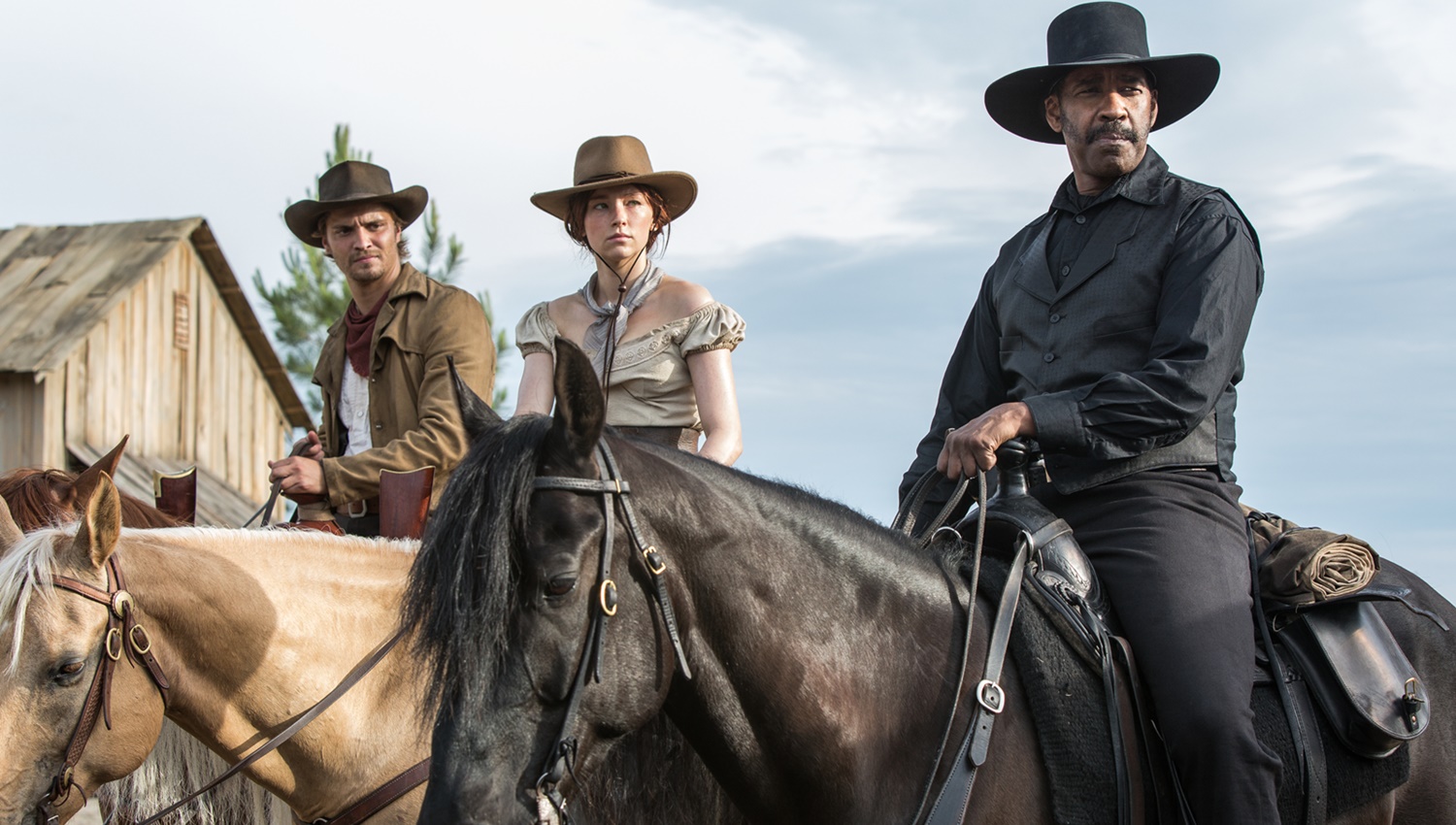
The Magnificent Seven
Dustin Chase
The only thing Antoine Fuqua’s version of “The Magnificent Seven” adds to the slew of remakes that came before is diversity. Based on the original 1954 “Seven Samurai” by Akira Kurosawa, then Americanized into a western in 1960, a sequel in ’72, then a TV-series in 1998, this story has been told to death. Fuqua chooses to adhere very close to the original script despite the colorful cast. The 2016 version of “The Magnificent Seven” is momentarily entertaining, yet never good enough to endure as a great western or action movie. Despite starring in his first western, two time Oscar winner Denzel Washington does his usual alpha male thing, allowing his supporting actors to soak up most of the flashy moments.
Bartholomew Bogue (Sarsgaard) takes what he wants. His sights are set on the little farming town of Rose Creek, due to its proximity with a fruitful gold mine that’s making him richer. He makes an example of the townspeople by burning their church and publicly killing some innocent citizens. New widow Emma Cullen (Bennett) begs Warrant and Peace officer Chisolm (Washington) from Kansas for assistance. Chisolm assembles a curious bunch of men from across the west including a wanted Mexican from Texas, an ousted Native Alaskan, a drunk jokester, a former sharpshooter for the military and a violent mountain man. “If you want to keep your town, you’re going to have to fight for it,” Chisolm warns the remaining inhabitants.
Momentarily entertaining, yet never good enough to endure as a great western or action movie.
For such a deadly and bloody western, Fuqua’s “Magnificent Seven” has a lot of comic relief. With both Washington and Pratt (“Guardians of the Galaxy”, “Jurassic World”) being names that sell tickets, equal time is given to the serious and the silly, with Pratt serving up heaps of the latter. The jokes delude the seriousness of the situation to a point, the film running so long, that you nearly forget what they are here to accomplish. Of course it doesn’t help that the poorly constructed villain Sarsgaard is playing only shows up in the prologue and then in the third act. If you stop and think for two seconds (which the film doesn’t encourage) why would either side of this war risk this much bloodshed and lives for a town.
“I seek righteousness, but I’ll settle for revenge,” Cullen says, even though Chisolm refuses to allow her in as one of the seven. Fuqua (“Training Day”, “The Equalizer”) is willing to ethnically diversify the cast but adding a female to the posse is clearly out of the question. Bennett does get a nice helping of scenes with a gun and is portrayed better than most females in westerns. Fuqua’s films, which are mostly Denzel Washington action vehicles, have never been accommodating to women. The third act’s hour long battle certainly delivers the fire power, but despite the beautiful cinematography and James Horner’s final script, the more is more is more approach becomes overly indulgent. On a curious side note, this is one of two westerns starring Hawke this year. “In a Valley of Violence” is a much smarter, snappier and more creative film. It will be in theaters next month.
Final Thought
Fuqua’s only improvement on the previous versions is with technology not creativity.
